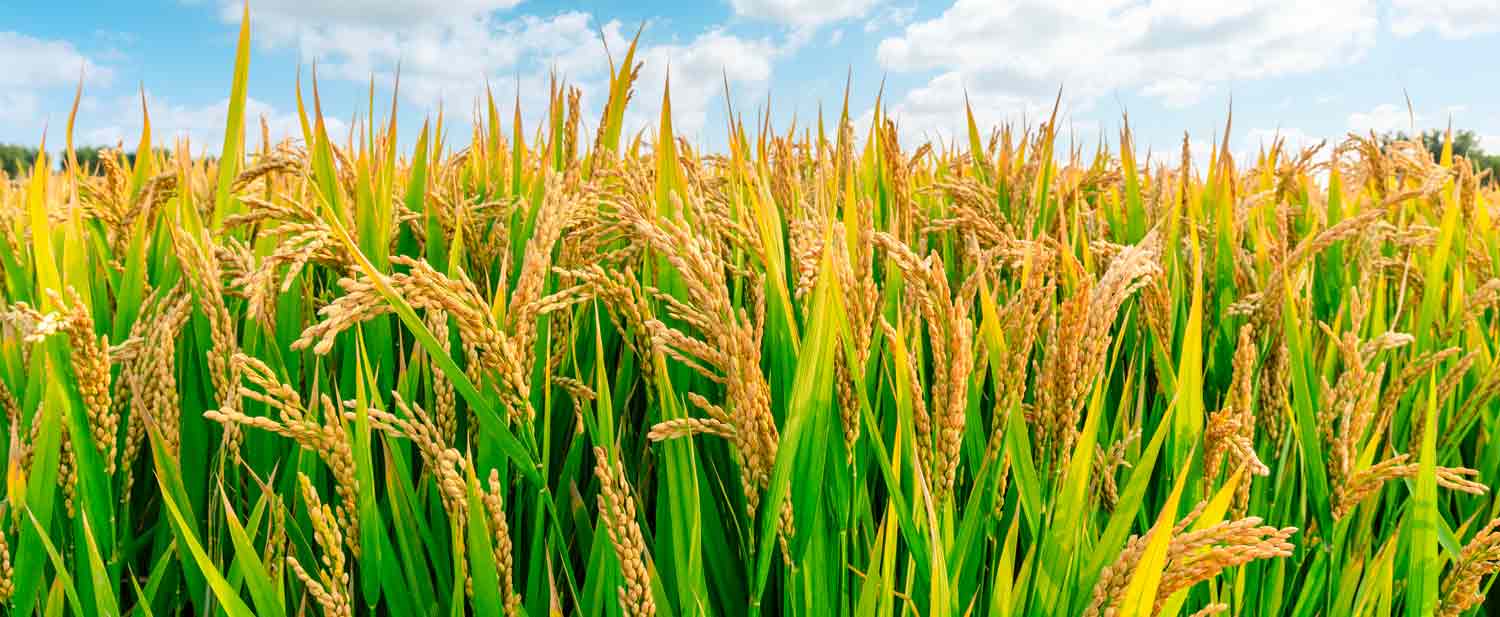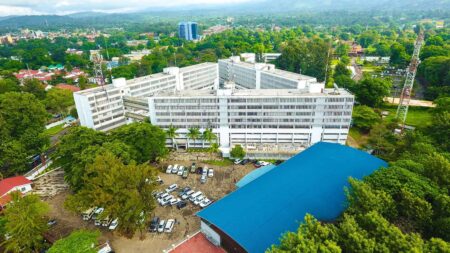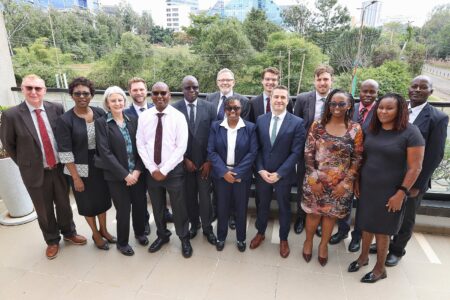The agricultural transformation in Sierra Leone has demonstrated that delivery changes in traditional sectors may significantly impact food production in Africa when implemented effectively and under the appropriate circumstances.
- Every African nation must assume ultimate responsibility for its food production to protect its population’s well-being when global markets fail.
- While no simple solutions exist to the present food security crisis in Africa, one potentially game-changing possibility lies in rethinking our agricultural approach.
- Agriculture ministries can lead the transition process, supported by sector agencies and departments.
The dramatic surge in food prices must inspire the search for solutions
The dramatic surge in food prices in recent months has been a significant setback for Africa’s food security. Food prices have forced many Africans into financial difficulty when many families still struggle to recover from the economic aftershocks of the Covid-19 outbreak.
The current conflict in Ukraine is the primary driver of the global food price spike, impacting nearly every region. According to the United Nations Food and Agriculture Organization (FAO), Ukraine and Russia produce over 30% of the world’s wheat and barley, 25% of maize, and more than 50% of sunflower.
READ MORE: Africa: Sustainable agriculture is crucial for food security and economic growth
The conflict and the subsequent Western sanctions imposed on Russia have severely curtailed the global availability of key commodities. The scenario is exacerbated by ongoing disruptions in global supply chains from Covid-19. This has caused food prices throughout the world to skyrocket.
According to the UN’s analysis of the consequences of the conflict, the Ukraine crisis threatens to push up to 1.7 billion people, or one-fifth of the global population, into poverty and starvation on a scale not seen since World War II. It suffices to say that the continent must strive hard to guarantee that Africa does not become a statistic.
The Ukrainian conflict has exposed the soft underbelly of globalisation. Thus, every African nation must assume ultimate responsibility for its food production to protect its population’s well-being when global markets fail.
Food security is recognised in the 1948 Universal Declaration of Human Rights as part of the right to an acceptable standard of life, codified in the 1966 International Covenant on Economic, Social, and Cultural Rights. African states must embrace this challenge wholeheartedly.
While no simple solutions exist to the present food security crisis, one potentially game-changing possibility lies in rethinking our agricultural approach. The agricultural practices must transform to catch up with current realities.
A transformative agricultural approach to food production
The agri-food industry employs almost two-thirds of Africa’s population and accounts for 30-40% of its GDP. The industry’s worth will surpass $1 trillion by 2030. The agri-food industry will grow in sync with African cities’ population and demand for food and other agri-processed products such as textiles. The transformation of this sector, which includes agriculture, agri-processing, and food processing, is essential to the continent’s economic growth agenda.
In Africa’s farmlands, a positive transformation is already underway. Most farmers combine modern ideas and scientific research with traditional wisdom. Consequently, they raise field productivity and crop diversification, improve nutrition, and enhance resilience to climate change.
This transformation can go much farther with digital tools, more market ties, and enhanced efficiency throughout agri-food chains. Importantly, the private sector and government policies must support the ambition.
The realisation of the transformative capacity of the agricultural sector for profitable socioeconomic growth calls for determined engagement by African governments. Whereas it is the responsibility of farmers and private players to advance market structures to create jobs, alleviate poverty, and provide food security, governments must develop enabling environments to empower these stakeholders to invest appropriately in relation to the industry’s needs and potential.
A coordinated strategy inside governments is necessary for long-term transformation. Agriculture ministries can lead the transition process, supported by sector agencies and departments. They include those in charge of energy, transportation, investment, finance, manufacturing, trade, education, tax collection, and regulatory authorities.
Moreover, these agencies and ministries must work together to provide an enabling environment. However, such coordination may only occur under the supervision of the offices of the heads of state and the ministries of economy and finance development.
READ MORE: Africa: Climate change effects worsen agricultural output, food security
Lessons from Sierra Leone improving agricultural practices

Smallholders are locked in subsistence farming in Sierra Leone, with some of the lowest agricultural production in West Africa. This stems from various factors. They include restricted availability of high-quality seeds and fertilisers, low levels of mechanisation, a lack of cheap financing, and inadequate agricultural advising services.
Although the government stepped in to offer subsidies to farmers, such subsidies had little significance on production. Instead, they induced producer dependency and pushed out an already weakened private sector. The rice consumption deficit and unsustainable sectoral practices heavily drained the Sierra Leonean economy.
In light of this backdrop, when President Bio got elected, he designated agricultural reform as the core of his Presidential Agenda. Consequently, in 2018, the President unveiled the National Agricultural Transformation Programme (NAT 2023), an ambitious plan to increase agricultural production by 2023.
The NAT 2023 plan was comprehensive and ambitious, focusing on four leading value chains: rice, livestock, tree crops, and forestry. Three main enablers would back these: research and policy, youth and women, private sector growth and agricultural mechanisation.
Focused intervention for food production
Sierra Leone’s government implemented crucial measures aimed at increasing rice production. They centred on shifting away from government-led agriculture towards a private-sector-led framework. Furthermore, the government established a $10 million agriculture credit fund to expand access to finance. The credit facility enabled the private sector to access finance at single-digit interest rates.
Further, the government worked to broaden agricultural mechanisation by creating private-sector-run service centres in every district with government-leased machinery. The access to quality agricultural inputs bolstered this move. The government established an e-voucher system for vulnerable farmers to purchase inputs from private agribusinesses, including fertiliser and quality seeds.
These interventions, taken together, energised the private sector and encouraged a competitive agricultural economy. Engaging the private sector helped Sierra Leone’s administration to create a robust public-private partnership (PPP). This move alleviated the burden of subsidies to achieve long-term sustainability.
To support these initiatives, the Ministry of Agriculture and Forestry (MAF) increased its use of technology and information systems to enhance delivery and build its own operational and technical competence.
Rice production in Sierra Leone increased by 21% by the end of the 2021-2022 harvest cycle. The rise marked the long-awaited transformation in the agricultural sector. The Economic Community of West African States (ECOWAS) independently certified this figure.
The extraordinary rise in yields was also noted anecdotally. Farmers cited a shortage of harvesters for all the agricultural produce for the season. Consequently, since the end of the harvest cycle, the country’s rice import volume for Q1 2022 remains lower than import levels in the same period in 2021 and 2020.
Several variables caused this decline, including currency depreciation and a reduction in food assistance imports by donor organisations. Nevertheless, the prospect of greater domestic rice production likely lowered local enterprises’ demand for imported rice.
In a nutshell
The agricultural transformation in Sierra Leone has demonstrated that delivery changes in traditional sectors may significantly impact food production when implemented effectively and under the appropriate circumstances.
Notably, by concentrating on the main hindrances, such as low mechanisation, limited access to capital, and a limited private sector, the policy change has resulted in more productive land use and, as a result, improved yields.
This has assisted smallholders in transitioning out of subsistence farming, increased the viability of a commercial agriculture sector, and directly influenced the welfare of Sierra Leonean families.
On a macroeconomic level, the policy change has improved food security, decreased import reliance, and technological innovation. All of these will benefit Sierra Leone’s economy as a whole. These lessons are crucial for Africa to improve agricultural practices to raise food production for food security and economic growth.
READ MORE: Enhancing intra-African trade will heighten economic recovery and promote food security





![Africa: Focus on transforming agricultural practices to boost food production Africa must look to improve and transform its agricultural practices to increase food production for food security and economic growth [Photo/Silvapinto] www.theexchange.africa](https://theexchange.africa/wp-content/uploads/2022/08/dreamstime_xl_116738955-scaled-1-1024x682.jpg)





